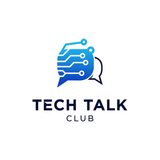Future-Proofing Your Tech Career: Getting Ready for AI and Automation in Software, Data, and Cybersecurity
As AI reshapes tech jobs in 2025, it's time to adapt rather than fear change. This article targets software developers, data handlers, and cybersecurity specialists, showing how AI automates routine tasks like basic coding or threat scans, freeing you for creative, high-impact work.

Discover domain-specific tips: Guide AI tools in software for faster projects, build ethical data systems, and use AI for proactive security. Essential skills include effective AI prompting, ethics awareness, and lifelong learning. With proactive steps—like monthly workflow audits and community networking—you'll position yourself for growth. AI isn't replacing you; it's amplifying your potential. Start small today and embrace the evolution. What's your first move?
In today's fast-changing tech world of 2025, artificial intelligence (AI) is more than a trend—it's transforming how we work. Reports suggest AI could handle tasks for hundreds of millions of jobs globally this year, with areas like software development, data handling, and cybersecurity seeing big changes. But this isn't about losing your job; it's about adapting so you can use AI as a tool to do better work.
This guide is for you: the software developer fixing bugs late at night, the data specialist managing huge amounts of information, or the cybersecurity expert watching for threats. We'll look at how AI is affecting your field and share simple steps to prepare. The goal? Help you stay ahead and even grow in your role.
The Big Picture: AI's Role in 2025 Workplaces
Many companies are using AI in their daily operations, but few have it fully figured out. In tech, a lot of jobs involve tasks that AI can speed up or take over, like basic coding or scanning for issues. On the flip side, AI is creating new opportunities—think roles focused on guiding AI tools or solving complex problems that machines can't handle alone.
The key? AI handles the repetitive stuff, leaving more room for creative and strategic thinking. Let's break it down by your area of work.
Software Development: From Writing Code to Guiding It
AI tools are now helping write a good chunk of code, which means fewer entry-level tasks and some team sizes getting smaller. But experienced developers who learn to work with these tools are in high demand—they're the ones leading projects and making sure the tech fits real needs.
Simple Steps to Prepare:
- Learn to Direct AI Tools: Think of AI as a smart assistant. Practice giving it clear instructions for simple tasks, like outlining a basic program. This can make your work faster and show you're adaptable.
- Focus on the Big Picture: Spend time on planning systems or solving tricky problems where human insight shines, like designing user-friendly apps.
- Build Useful Skills: Get comfortable with tools that blend human and AI work, and look into growing areas like secure or efficient systems.
Tip: Track how using AI saves you time each week—it'll help you see your progress without feeling overwhelmed.
Data Handling: From Managing Files to Building Smart Systems
AI is making routine data tasks—like cleaning up files or setting up flows—quicker and easier. This could change up to two-thirds of everyday workflows. But data pros who shift to overseeing AI-driven setups, ensuring data is used fairly, will be essential.
Simple Steps to Prepare:
- Create Smarter Data Flows: Start using AI to spot patterns or fix issues automatically in your data processes.
- Learn Teamwork with AI: Get familiar with ways to launch and manage AI projects smoothly, focusing on reliable data storage.
- Prioritize Trust: Learn basics of keeping data private and ethical, as rules around this are getting stricter.
Tip: Try a small project, like using AI to summarize a dataset, to build confidence and add to your resume.
Cybersecurity: From Watching Alerts to Smart Defense
There's already a shortage of cybersecurity experts, and AI is helping by automating basic checks for threats. This might reduce some routine jobs, but it opens doors for roles that involve planning against advanced risks or using AI to stay one step ahead.
Simple Steps to Prepare:
- Use AI as Your Ally: Experiment with AI to quickly review logs or spot unusual activity, cutting down on manual scanning.
- Study Smart Risks: Understand how attackers might trick AI systems, and learn frameworks for safe AI use.
- Aim for Broader Roles: Combine your security know-how with AI to help teams protect new tech.
Tip: Practice by running mock scenarios where AI helps detect issues—this builds real-world readiness.
Essential Skills and Tips: Your Go-To Toolkit
Most tech folks expect their jobs to evolve soon, so proactive steps pay off. Focus on guiding AI effectively to speed up routine work, understanding ethics and fair use to meet new rules, blending human and AI efforts for better teamwork, committing to ongoing learning through simple courses, and combining communication with your tech skills to share ideas clearly.
Extra Tips: Review your daily tasks monthly—swap out boring ones for AI help. Join online groups to swap stories, and remember: Most people see AI as a helper when used right.
Looking Ahead: Embrace the Change
AI isn't here to push you out—it's a chance to level up. In software, data, and security, success goes to those who team up with it. Start small: Pick one idea from here and try it this week. You've got the skills; now add adaptability. What's your next step?




